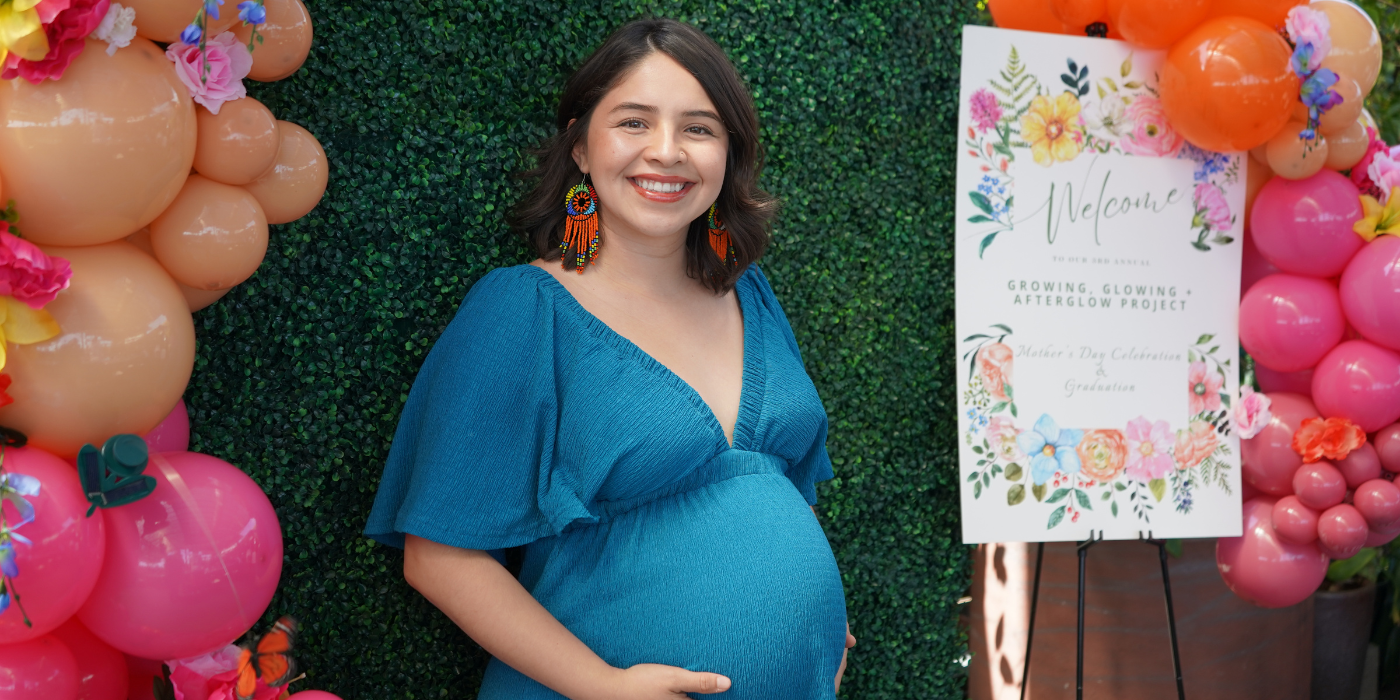
Pregnancy brought feelings of anxiety and isolation for Alameda Health System (AHS) patient Marjorie Vega Martinez until her midwife, Eva Goodfriend-Reano connected her with the Growing, Glowing and Afterglow Program (GGAP).
GGAP supports pregnant and post-partum mothers and birthing people with anxiety and depression and helps increase social support. The virtual six-week program is facilitated by a therapist and a community health outreach worker provides group therapy and case management for English and Spanish-speaking AHS patients. It was at GGAP where Vega Martinez found strength and support.
“GGAP gave me tools to manage my emotions,” Vega Martinez shared. “It helped me at home and connected me to resources like baby essentials and community events for new moms.”
Patients are referred to GGAP if they show signs of anxiety, depression or disconnection. Providers link them to integrated behavioral health (IBH) for assessment, which may lead to GGAP enrollment.
For Pam Neher, clinical supervisor for IBH, guiding mothers through GGAP is personal. “As a parent with an infant during COVID, I know how isolating early parenthood can be,” she said. “Offering virtual GGAP groups became essential in providing connection, support and a healing community.”
Launched in 2019 with two in-person cohorts, GGAP shifted online in 2021 to ensure continued support during the pandemic. Since then, it has hosted 37 cohorts and graduated 237 participants. With grant funding, GGAP can offer up to eight cohorts a year and provide a $250 incentive for completing the six-week program.
As the program grows, the team continues to build their expertise. This year, the IBH staff who lead GGAP groups will earn certification in perinatal mental health, including two bilingual licensed clinical social workers (LCSWs), Irma Romero and Cindy Munoz, and a bilingual community health outreach worker (CHOW), Evelyn-Terceros McGhee.
“Mental health challenges in the peripartum and postpartum period affect parent-child connection and attachment,” said Joanna Zygmont, PsyD, director of ambulatory integrated behavioral health services. “Investing in a mother’s or birthing person’s mental health benefits not only the child, but the community as well.”
Vega Martinez experienced those benefits firsthand. When she joined the English-language cohort in March 2025, she quickly found not just a class, but a community. “I was nervous and shy at first, but I soon realized I could receive support and also share my experiences to help others,” she said. “Listening to other moms’ stories, sharing my own and seeing we’re not alone created a strong sense of unity.”
Evelyn Terceros-McGhee, a CHOW who co-facilitates GGAP groups, witnessed Vega Martinez’s growth in the program firsthand. “Marjorie wanted to meet other mamas and she quickly became a supportive presence in the group,” she said. “At our annual graduation and Mother’s Day celebration, Marjorie was near her due date, glowing and surrounded by friends she’d made through the program.”
What began as a journey marked by anxiety now inspires new mother Vega Martinez to encourage others to join GGAP. “My advice is simple, just take the leap,” she said. “I was shy at first, but GGAP made a big difference. It’s a safe, supportive place where moms can learn, grow and glow together.”
AHS patients interested in GGAP should ask their provider for a referral. For more behavioral health resources, visit the AHS Behavioral Health webpage.
AHS providers can refer perinatal patients to GGAP by making a behavioral health request through EPIC.
